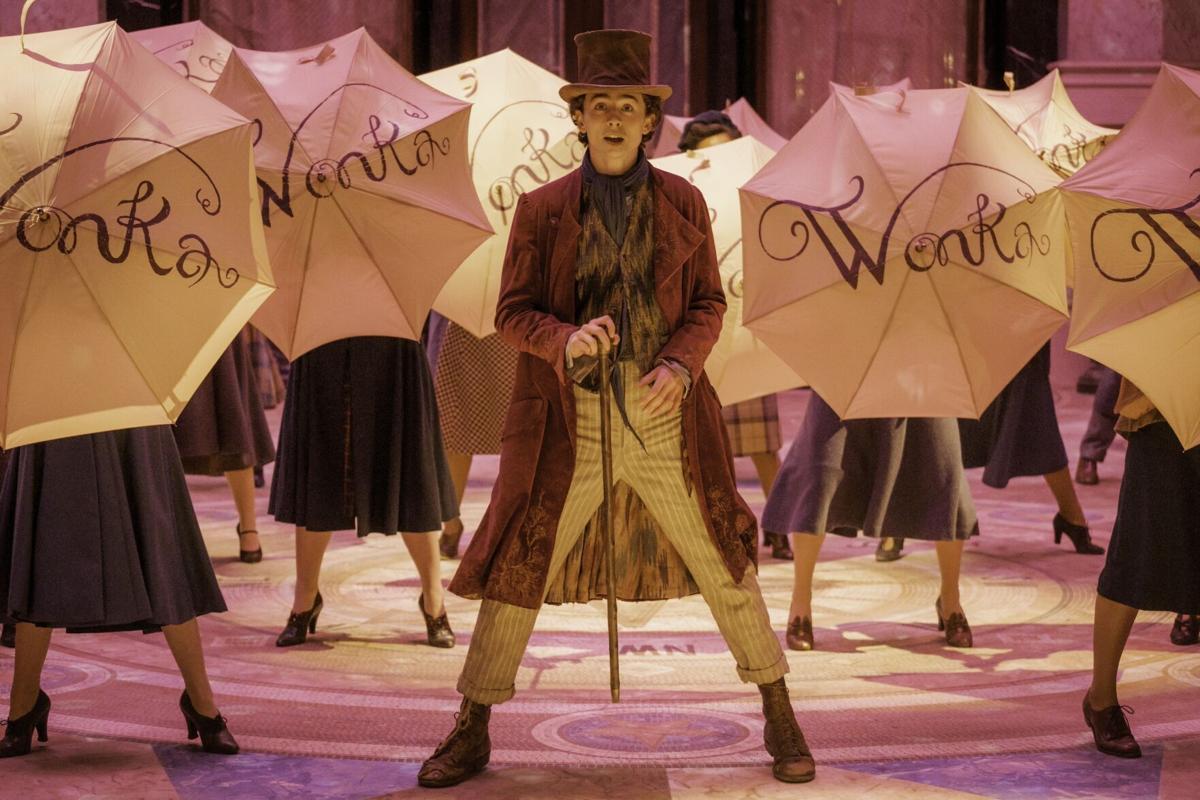There’s an awful lot of magic that goes into a Willy Wonka delicacy. And even though others are eager to take him down, he has a way of staying afloat.
That’s what we learn in “Wonka,” a lavish look at the early years of the candy man.
Played by Timothee Chalamet (a great choice), he’s determined to become one of the big chocolatiers. Others, though, are eager to take him down. They have a corner on the market and don’t want this man who can make people fly cutting in on their business.
They conspire and, soon, it’s a battle between good and evil.
Director Paul King doesn’t spare a sprinkle in telling the story. His sets are magical (more magical than the ones conjured in “Willy Wonka and the Chocolate Factory”), his costumes are spot-on.
Only the songs (of which there are many) tend to pale when placed next to “Pure Imagination.” Chalamet is pretty good at singing (and dancing) and can charm anyone with his personality – except Slugworth (Paterson Joseph), Prodnose (Matt Lucas) and Ficklegruber (Mathew Baynton). They’re the competitors who get their comeuppance in due time.
First, though, Wonka has to make it through a dark chocolate life at the inn where Mrs. Scrubbit (Olivia Colman) rules without a trace of remorse. In short, she’s Miss Hannigan from “Annie” who thinks nothing of forcing children into servitude.
To make sure there’s enough of a tie to the original film, one Oompa Loompa (played with appropriate disdain by Hugh Grant) serves as a guide through a world that has no imagination. He tells people off and becomes incensed when he’s trapped in a situation not of his making. The performance (and storyline) helps redeem characters who didn’t age well after the first film. Like his work in “Paddington 2,” another King venture, Grant's the much-needed comic relief that keeps this from getting too far afield. Thanks to his cynicism, “Wonka” is more in keeping with Roald Dahl’s original concept than the two films that followed. The three candy czars are like the bratty children who won golden passes to Wonka’s chocolate factory. Connect the dots and you’ll see how well King has tied this up.
To add his own touch, the director tosses in animation, Busby Berkeley-like choreography (by Christopher Gattelli) and a young girl named Noodle (Calah Lane) who gives audiences a reason to care. Like Charlie, she just wants a bit of the goodness that exists in the world. Because she’s under the thumb of Scrubbit (who’s almost too cartoonish to bear), she needs someone like Wonka to pull her out.
While a chief of police might be a good character to help settle these scores, he’s little more than a stray character from “Schmigadoon!” in Keegan-Michael Key’s hands. As he blows up from the spoils of candy, we become less enamored with his presence and his ability to sort this all out.
Instead, it takes Chalamet’s plucky approach to the material to make it work. When “Wonka” delves into religion and its relationship to chocolate, this becomes the sweet treat everyone wanted.
Gene Wilder fans won’t have to worry that his interpretation is being usurped. But they can delight in the reverence Chalamet has provided and the connections he is able to make.
When he sings “Pure Imagination,” you know the world of bars, bonbons and chocolate fountains is in great hands.
Movie critic Bruce Miller says "May December" goes deeper than any investigative story and hurts more than a well-timed social media post.





